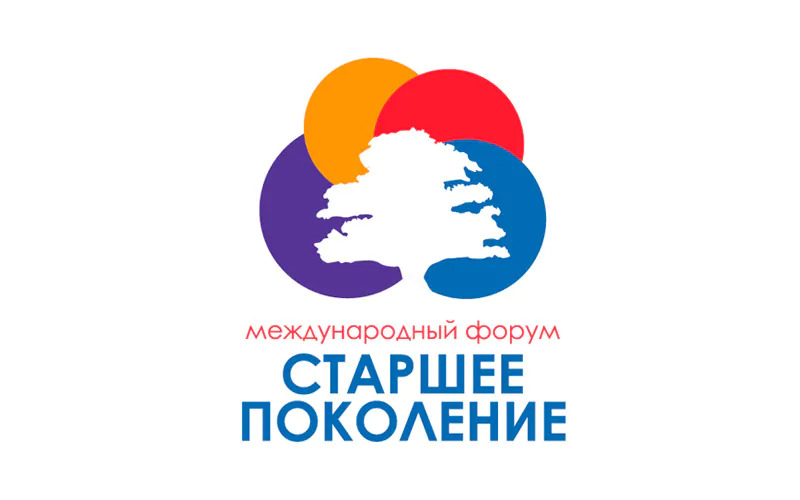Artificial Intelligence to Protect Longevity

How can digital technologies and artificial intelligence be used to increase the life expectancy of Russians and improve the quality of life of «silver age» people? These and other issues were raised at the XVIII scientific and practical international conference «Pushkova Readings-2024: Innovative Digital Solutions of Socially Significant Problems in Geriatrics». The event took place within the XVII International Forum «Senior Generation» at ExpoForum Convention and Exhibition Centre.
The conference with participation of leading healthcare specialists, social services and IT-integrants is dedicated to search for effective organizational formats in solving socially significant problems in geriatrics (section of gerontology that deals with study, prevention and treatment of gerontic age diseases), as well as search for implementation of new digital solutions in this area.
«The topic of improving technologies in geriatrics is especially important given the progressive aging of the population, – underlined Deputy Chairman of the Healthcare Committee (Saint-Petersburg) Alexey Tereshin. – Taking into consideration that by 2030 the projected number of Russians over 60 years will increase from 34.5 to 36.7 million people, the need to develop high-quality medical care for the elderly population becomes obvious».
Today, the population of St. Petersburg is 5.6 million people, and more than a quarter (almost 1.5 million) of them are women over 55 years old and men over 60 years old. If the average life expectancy today is 73.4 years, then the national goal by 2030 is 78 years, and by 2036 – already 81 years. Therefore, issues of quality and accessibility of medical care for older people, topic of organization of social services in the system of care for older and disabled people, methods of interaction between interdepartmental organizations and, of course, importance of preventive foundations for support of population are becoming especially relevant. In all these issues, innovative digital solutions to geriatric problems come to the rescue.
For several years, in cooperation with the Department of Geriatrics, Propaedeutics and Management in Nursing named after the founder of St. Petersburg geriatric service Ella Pushkova, North-Western State Medical University named after I. I. Mechnikov and City Geriatric Medical and Social Centre in St. Petersburg, a scientific and practical conference «Pushkova Readings» has been held. As part of the XVII International Forum «Senior Generation», at the conference leading specialists in healthcare and social services discussed issues of digitalization of socially significant problems in geriatrics.
«With the help of information technology, we can not only keep records of elderly patients, but also monitor their condition remotely, save and transmit diagnostic results, monitor the correctness of the prescribed treatment, conduct remote training and provide consultations to employees», – underlined Ekaterina Lapteva, Head of the Department of Geriatrics, Propaedeutics and Nursing Management.
Today, digital devices are widely used for personal use promoting healthy aging and helping people to improve their quality of life.
«These devices are gradually becoming the most important tool in prevention and treatment strategies, while increasing the availability of medical services for population», – added Iosif Eliovich, Chairman of the Interregional St. Petersburg and Leningrad Region Organization of the Trade Union of Healthcare Workers of the Russian Federation.
The use of IT in medicine allows doctors to conduct online consultations at any convenient time; patients can receive qualified assistance from experienced doctors remotely. Improving IT accessibility ensures that everyone, regardless of age, gender and ability, can access and benefit from information and communications on equal terms. This is especially important for people with limited mobility and older people. Implementation of accessible information and computer solutions also provides alternative solutions for using technology – and thus ensures that age-related impairments (reduced vision, hearing loss) will not affect access to digital products and services or understanding of information and communication that can be vital in emergency or crisis. An example of this is the «Life Button» – Russian project created in 2010 that offers the first medical alarm system in Russia for emergency calls to help the older people and children. Nowadays, 556 people in St. Petersburg are already using this button.
The developed IT solution, the «Ju-Piter» database, should unite all people of «silver age». The database allows creation of the organized collection of geriatric data; all data obtained about the patient is stored in a structured form and is constantly updated and supplemented during subsequent visits of the patient. At the moment, this is the only database in geriatrics that contains a set of scales, tests and questionnaires that allow to comprehensively determine the condition of the patient, to identify not only geriatric syndrome, but also to provide an individual plan of preventive measures for the patient.
Nowadays, there are many regulatory legal acts in the field of geriatrics, as well as in the field of digitalization of healthcare. However, there are still no agreements between medical and social organizations and regulations for data exchange, such as electronic document management, interfacing of information systems of healthcare and social protection organizations. At the conference, Maxim Kabanov, Head of St. Petersburg State Healthcare Institution «Hospital for War Veterans», and Larisa Shishova, Head of the Republican Clinical Hospital for War Veterans, signed a cooperation agreement with the Ministry of Buryatia.
«Cooperation with the regions of our vast country is one of the most important elements of success in healthcare and gerontology», – noted Larisa Shishova.
According to Sergey Sayganov, Rector of North-Western State Medical University named after I. I. Mechnikov, IT MHealth projects (MHealth is an acronym for mobile health, a term used to describe medical practice and public health supported by mobile devices) expand access to health care and information, improve diagnostics, monitoring and early detection of disease, expand access to medical education and accelerate the discovery of new drugs.
It is important that AI software is strictly controlled and tested before being used in clinical practice.